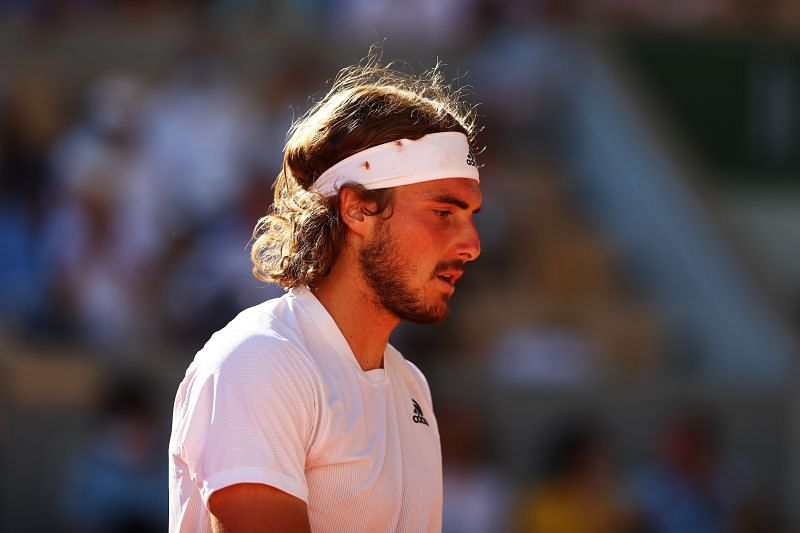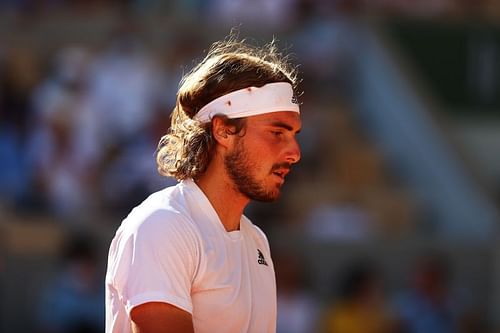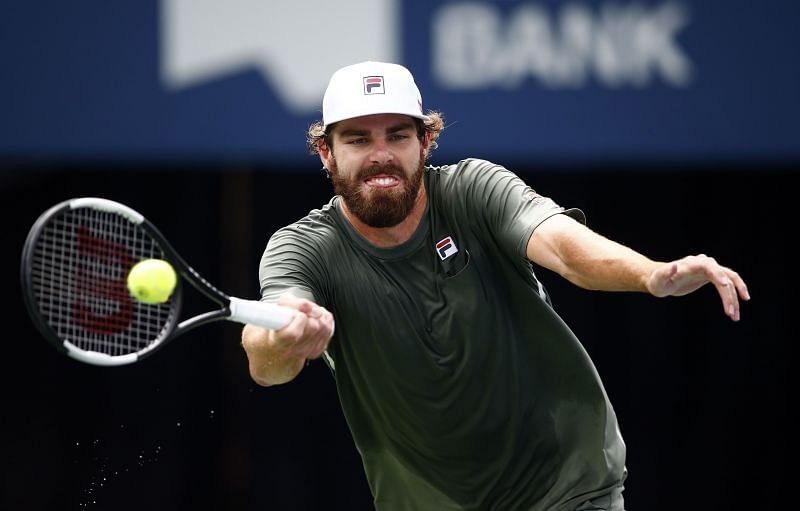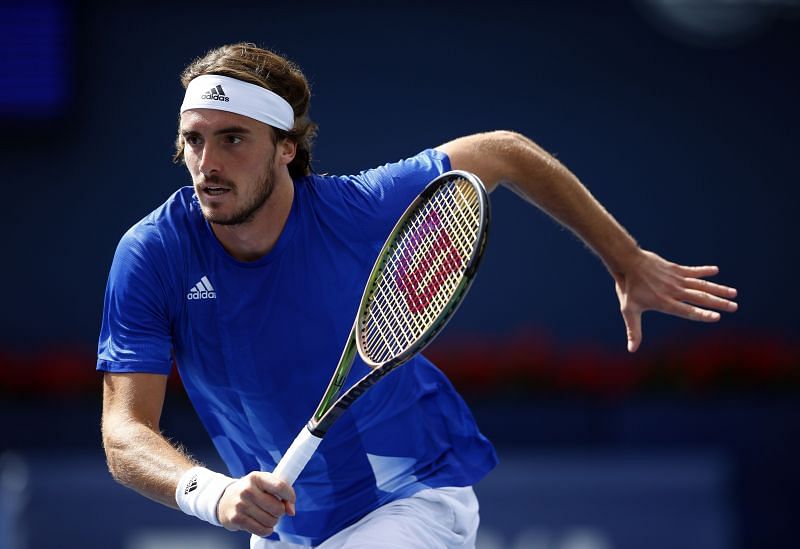
"It didn't go my way, and it's all right, I feel like there is hope for next time" - Stefanos Tsitsipas on SF loss to Reilly Opelka

Third seed Stefanos Tsitsipas went down fighting 6-7(2), 7-6(4), 6-4 against Reilly Opelka in the semifinals of the 2021 National Bank Open on Saturday.
In a marathon match that lasted over two-and-a-half hours, the 23-year-olds were inseparable for the most part. But the Greek eventually blinked in the seventh game of the final set to concede the only break of the match. Opelka then held firm in his next two service games to claim the first top-five win of his career.
The American will face Daniil Medvedev in his maiden Masters 1000 final, while Tsitsipas will head to Cincinnati.
During his post-match press conference, Stefanos Tsitsipas, who cut a frustrated figure throughout the match against Opelka, was asked whether he found the conditions in Toronto tough to tackle. The Greek replied in the negative, saying "nothing was too difficult to handle."
Tsitsipas also said he was not too disappointed with the result and that "there is hope for next time."
"Nothing was too difficult to handle," claimed Tsitsipas. "It was played on the details, and he prevailed. It didn't go my way when it had to, and it's all right. I feel like there is hope for next time."

Tsitsipas failed to consistently make inroads into Opelka's service games and earned just one breakpoint in the match, which he failed to convert. When asked about his struggles against big servers, the Greek said the return of serve is an area he has been constantly striving to improve.
"It's not that I'm not working on that. "I'm spending a lot of hours trying to perfect that, but it's not very easy," said the World No.3. "The speeds reach close to 230, 240 kilometers per hour. Even with the best anticipation, it still makes it very difficult for even a one-handed backhand guy to return those serves."
The match between Tsitsipas and Opelka was dominated by serve and did not feature too many long baseline rallies. Tsitsipas admitted that he could not get into any sort of rhythm, which made it hard for him to impose his style of tennis.
'When you get no rhythm, it's also kind of difficult, sometimes to feel and get the shots that you had before," said Tsitsipas. "It's not that I was scared or afraid. It's just that I was missing shots in the rallies."
"I was lacking the experience from the baseline; of playing rallies that I could have had a better understanding of how to play and where to play. I had very few of those opportunities, and it kind of cost me in the end," said the Greek.
"My one-handed backhand has saved me and helped me get important wins in my career"- Stefanos Tsitsipas

Tsitsipas is one of the few top players who uses a single-handed backhand. The Greek likes to hit his backhand with a lot of topspin and does not often slice the ball to disrupt the opponent's rhythm. Slices tend to stay low, making it hard for taller players like Opelka to take a big swing at the ball.
When asked if he would use the slice more frequently against big-servers going forward, Tsitsipas said it was important to find a balance between slice and topspin.
The Greek went on to add that his topspin backhand was one of the reasons for his remarkable success and that slicing had never won him a big match.
"Well, it's combining it both. Slicing too much can cause harm, as well. You have to keep it balanced," said Tsitsipas. "I feel very confident with my backhand and I do understand that I'm not slicing enough, but that's also for a reason.
"My backhand, my topspin, one-handed backhand is a shot that I trust a lot and has helped me win many matches. It's very rare that I have really won a match because of slicing really well. I mean, I want to use it more, but I think my weapons are clear," added the Greek.